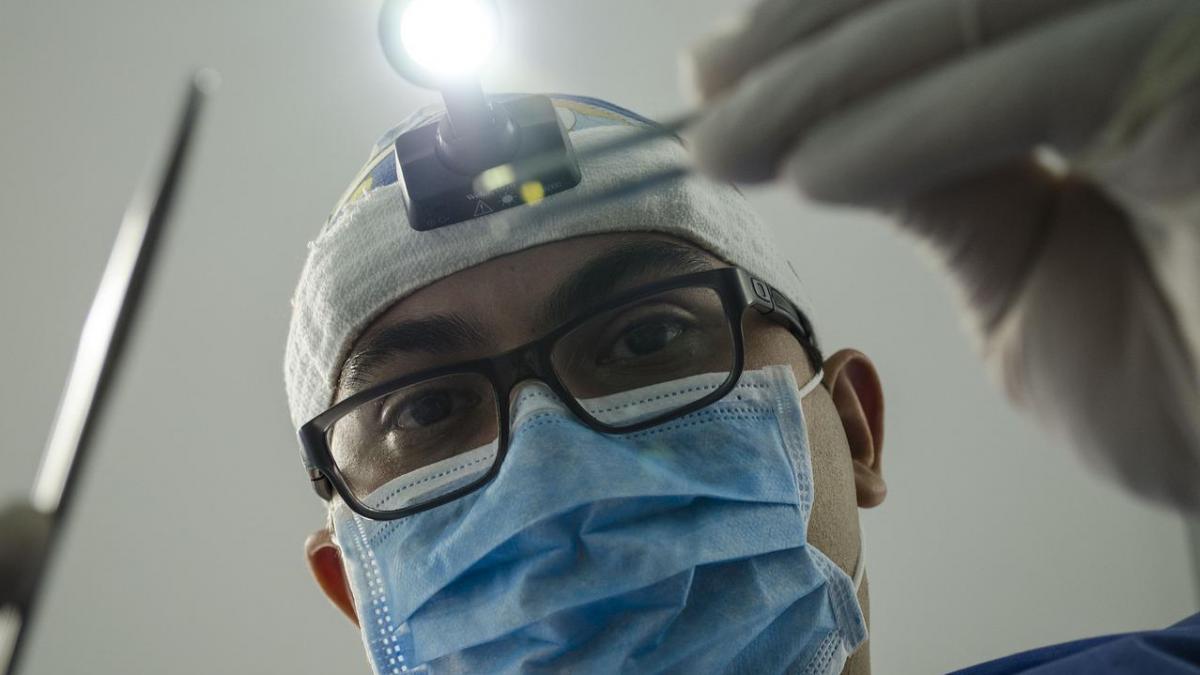How medtech startups are transforming India’s OPD… Leave a comment

Innovations jointly brought in by the medtech and insurance tech start-ups are transforming the Out Patient Department (OPD) segment in India. The evolving consumer expectations observed over the last few years have prompted the rise in a bunch of healthcare innovations which can be witnessed in India’s gradual transformation of OPD care.
According to industry experts, currently, a marginal percentage of about 10-12 per cent of the population is covered by non-government health coverage. “These numbers clearly indicate the fact that OPD expenses account for 62 per cent of total healthcare costs in India. With the COVID-19 threat still looming, OPD visits and expenses are just expected to inflate further. At a time like this, digital interventions are effectively addressing the pain points of healthcare seekers and are thus enhancing the overall OPD experience across the country,” Vaibhav Singh, Co-Founder, Visit Health, a doctor consult and healthcare chatbot app.
“The outbreak of the coronavirus pandemic and the rising medical inflation have further led to the introduction of cashless Out-Patient Department (OPD) schemes. Introduced as a part of corporate health benefits and insurance, cashless OPD is rapidly permeating the health insurance landscape. In lieu of this collaboration between Health-tech and Insur-tech, the cashless OPD innovation has fuelled and is now effectively curbing medical inflation,” said Singh.
Visit health has tied up with some insurers to provide cost-effective OPD benefits plans that include health check-ups, consultation, diagnostics, pharmacy and so on to their retail users. Visit Health has associated with Swiggy, Axis Bank, Times Group, Gartner, Michelin, Avery Dennison, Hindalco and Olx.
Visit health has also partnered with Corporates, Insurers and Mass Retailers of all sizes across India to manage and provide ‘Flexi Wallet’ OPD plans that combine cashless and reimbursement benefits. Through these strategic partnerships, the platform offers seamless online-to-offline health benefits such as In-clinic doctor consultations, diagnostics, e-pharmacy and doctor e-consultations among others.
“Digital interventions like virtual consultations, online diagnosis, medical wearables and electronic health records have enabled healthcare seekers to be wired with on-demand, anytime and anywhere OPD services. This shift from OPD as infrastructure to OPD as a service has been at the forefront of OPD transformation in India,” said Singh.
Start-ups like MedPay believe that the immense value of the OPD segment can be unlocked for all stakeholders by leveraging technology-based solutions. MedPay’s API-powered Connected Care Network, an organised pan-India network of OPD providers, currently has over 35,000 pharmacies, 15,000 doctors, and 1,200 labs. The pandemic has acted as a powerful catalyst, giving a much-needed push to the entire healthcare ecosystem to go digital.
“The need of the hour is to organise the OPD segment and ensure that payers, providers, and patients have easy access to this network. India needs to connect the primary healthcare centres, pharmacies and diagnostic labs with the cashless insurance network in order to bring them into the digital economy,” said Ravi Chandra, co-founder and CEO, MedPay.
Industry experts believe that despite the continuous progress in the OPD services in India, there are still many setbacks that make India’s OPD segment lag behind other economies. “The segment undergoes challenges including accessibility, infrastructure, manpower and logistics that hamper the entire OPD process thus affecting patient care delivery,” said Singh adding that another prominent challenge in the OPD sector is pertaining to the insurance aspect. In a country like India, having a vast population, health coverage is largely available for people when they get hospitalized for 24 hours or more. OPD top-ups are becoming popular in retail but they provide limited benefits with hardly 10-15 per cent discount, Singh said.
Experts further hold that Indian healthcare ecosystem is yet to arrive at the tipping point of radical transformation in the outpatient industry. With technology adoption, the OPDs are also seeing a transformation. Start-ups have been trying to solve for the OPD challenges from different angles such as Practo led with discovery, 1mg with medicines, Helathplix from electronic medical records (EMR) and so on. Another start-up Meddo Health has brought solutions based and created after intensive study of real-time workflows of doctors. Meddo is building partnerships with other brands that are in the space, offering its network and services.
“With an ageing, vulnerable population, the focus must be on primary care, the only way to deal with this epidemic at hand, early detection of underlying symptoms needs to be stressed now more than ever to be able to grow with a more productive workforce. The pandemic added urgency and accelerated the process of change for healthcare to become more digitally enabled,” said Saurabh Kochhar, CEO, and Co-founder of Meddo.
“OPD market in India is extremely fragmented with 90 per cent of clinical establishments in the country being single doctor-run clinics. In fact, India has around 5 Lakh clinics for about 8 Lakh doctors. This leads to most of these clinics being consultation boxes with very limited traceability and accountability of care. Add on top, the fractured patient experience where one has to go through 8-10 stops before they can be back on their feet,” he said.


